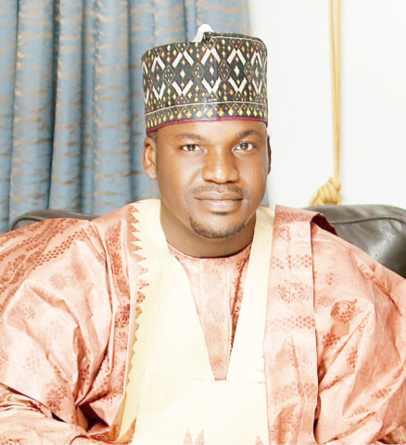In this interview with Daily Trust Saturday, Dr Muhammad Goje, the executive secretary of the Yobe State Emergency Management Agency (YOSEMA), spoke on the distribution of palliatives to alleviate the challenges of fuel subsidy removal on the people, and other humanitarian activities in the state.
Many states are distributing palliatives to alleviate the suffering people are going through as a result of fuel subsidy removal by the federal government, what are you doing in Yobe?
Distribution of palliatives and other non-food items is not new in Yobe State. It has been going on in northern states affected by insurgency.
When fuel subsidy was removed, Governor Mai Mala Buni gave a matching order to constitute the Yobe State High Power Committee on Palliative Distribution, which he chaired and his deputy served as vice chairman. He directed the Yobe State Emergency Management Agency to review its stores and warehouses. The agency was mandated to see how we could reach the most vulnerable population in the state.
Fayemi congratulates Tinubu on Supreme Court victory
Fayemi congratulates Tinubu on Supreme Court victory
Before the constitution of the committee, the State Emergency Management Agency (SEMA) was directed to identify the most vulnerable persons in the state. We understand that the most vulnerable are persons living with disabilities because they usually go to motor parks and markets to beg for daily meals. And subsidy has affected the movement of commuters and vehicles; therefore, if there are no vehicles in motor parks and traffic junctions, such people would end up coming back home without food to feed their families.
We started with 500 and later increased the number to 1,500. We supported them with food baskets that contained rice, grains, vegetable oil and some condiments. Thereafter, the state committee on palliative distribution was constituted. We were sworn to action through three components: assessments, resource mobilisation and distribution. As I am talking to you now, the distribution is ongoing.
How many households are you targeting; and how many have received their food baskets so far?
While we are targeting 400,000 households in the state, so far, more than 163,582 households in 10 local governments—Damaturu, Jakusko, Fune, Potiskum, Fika, Bade, Geidam, Tarmuwa, Bursali and Gulani out of 17 – have benefitted from petrol subsidy palliatives under mass distribution components, but other components reached all the 17 local government areas in Yobe. The items are 20kg of rice, maize, pasta, condiments and other non-food items.
How many bags of rice did Yobe State receive from the federal government as palliatives?
The first palliative we received from the federal government was 5 trucks of 50kg parboiled rice.
Thereafter, we started receiving more trucks of grains in tonnes. Out of the total number we are expecting from the federal government, so far, we have been able to receive 50 per cent of the total food basket allocated to Yobe.
We are expecting over 80,000 bags of 50kg, depending on the conversion of tonnes, but I believe it is more than that number. So far, we have received only a little above 12,000 to 13,000 bags. That does not mean that they are not coming, but there is demand in the country and the competing market. Vendors might also cause delay, but we are still in touch with them and they have been assuring us that they would keep sending the food baskets.
How do you select the beneficiaries?
We adopted the bottom-to-top approach. This means that before any distribution we would send a letter to the local government area and copy security agencies and all community gatekeepers for an engagement meeting.
The meeting will be attended by stakeholders, elders, representatives of various political parties, women and youth groups, people living with disabilities, widows, orphanages and the Nigeria Labour Congress (NLC), security agents, others. We used to tell them how the palliatives are allocated.
There will be an inclusive method of identifying and targeting beneficiaries; and SEMA will validate the list, which contains the name, ward and phone number of each beneficiary.
We also have cluster distribution, where we give the food baskets to the leadership of selected beneficiaries like the National Union of Road Transport Workers (NURTW), vigilante groups, Man ‘O War, among many others.
Some people are living in hard-to-reach areas, what are you doing to get the palliatives to them?
We use an alternative means of transportation to deliver the palliatives to them. We usually hire motorcycles so that our food baskets can reach such communities.
Some beneficiaries from hard-to-reach areas also come to local government headquarters to claim their palliatives. SEMA used to hire motorcycle riders to deliver palliatives to the hard-to-reach communities.
Apart from the federal and state governments, do you have donors?
This question is under the component of resource mobilisation, where the state government mobilizes resources through different sources.
Local government councils also gave their contributions to the distribution of food items.
There is also the North East Development Commission (NEDC).
What are the challenges you are facing?
The challenges are enormous. There are isolated communities we think are not part of the cluster. For instance, we might not have the mandate to support all the security agencies but we need to support them. We might not have the link to support them but we try our best to include those that gave us security cover during our distribution. Security is not only for our food items but to ensure that beneficiaries go home safely with their items.
Another challenge we encounter is that we have five communities who are returnee displaced persons in Gujba East. And they are up to 50,000 people. This issue is an additional burden on the resources because they are not part of our original formula, but Governor Mai Mala Buni said we should include them in our food baskets.
The delay in the coming of items from the federal government is another challenge, but understand that it has to do with the increased demand in the market and competitiveness among the states who are struggling to receive their food items from the federal government. Like Yobe, every state is waiting for the palliatives.
Lack of appreciation and complaint are part of the challenges. Every local government area we go to we would see that people are in dire need. Some people are not vulnerable but they need the palliatives. With as small as 20kg, people are smiling and appreciating. Meeting the demand of the larger population is another challenge because you can’t give everybody.

 Join Daily Trust WhatsApp Community For Quick Access To News and Happenings Around You.
Join Daily Trust WhatsApp Community For Quick Access To News and Happenings Around You.


